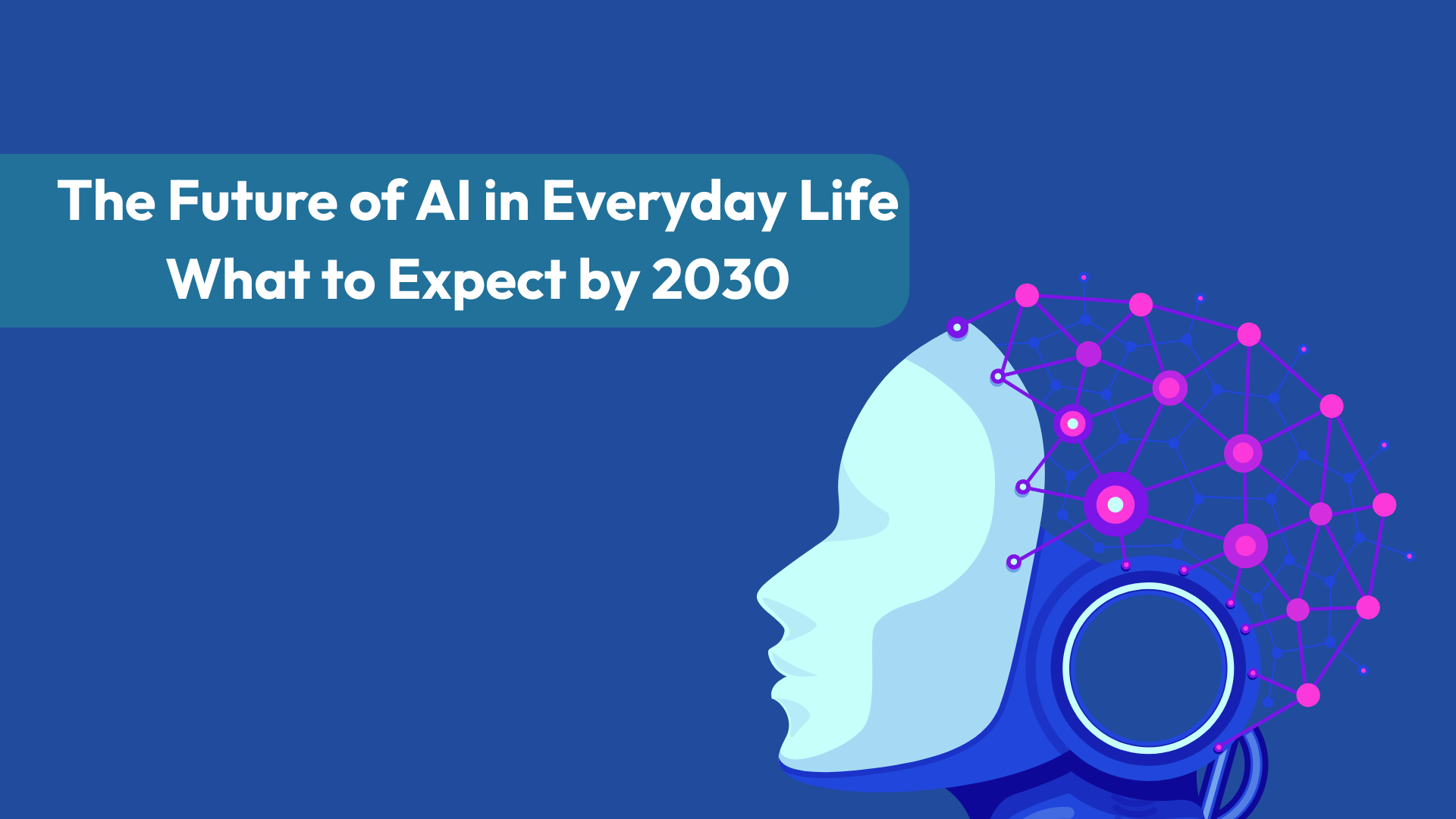Artificial Intelligence (AI) is no longer a futuristic concept—it’s already integrated into our daily lives. From voice assistants to personalized recommendations, AI transforms how we work, communicate, and make decisions. But what will AI look like by 2030? Here’s a glimpse into the near future of AI and its impact on everyday life.
1. Smarter Personal Assistants
By 2030, AI-driven personal assistants will go beyond simple voice commands. They will:
- Anticipate needs based on past behaviors.
- Schedule and manage tasks autonomously.
- Offer real-time, context-aware recommendations.
- Act as AI concierges, seamlessly handling reservations, orders, and travel arrangements.
2. AI in Healthcare: Personalized and Predictive Medicine
AI will revolutionize healthcare by:
- Predicting diseases before symptoms appear using genetic data and lifestyle patterns.
- Providing AI-powered virtual doctors for instant medical consultations.
- Enhancing robotic-assisted surgeries for greater precision and efficiency.
- Using AI-driven drug discovery to develop new treatments faster.
3. Autonomous Vehicles & AI-Driven Transportation
Self-driving cars and AI-powered traffic systems will:
- Reduce traffic congestion by optimizing routes in real time.
- Increase safety through accident prediction and prevention.
- Offer AI-driven ride-sharing services for efficient urban mobility.
- Introduce autonomous delivery drones for last-mile logistics.
4. AI in Smart Homes & IoT
By 2030, smart homes will be fully AI-integrated, featuring:
- AI-powered energy management to optimize electricity consumption.
- Voice-controlled everything, from security systems to appliances.
- Predictive maintenance for household devices to prevent breakdowns.
- AI-driven robotic assistants for household chores.
5. AI in the Workplace: Automation & Collaboration
AI will reshape jobs and productivity by:
- Automating repetitive tasks frees humans from creative and strategic work.
- Enhancing remote collaboration with AI-driven meeting assistants.
- Offering AI-driven decision-making tools for businesses.
- Creating hyper-personalized learning experiences for employee training.
6. AI in Shopping & Customer Experience
Retail and e-commerce will become more immersive with AI-powered:
- Virtual fitting rooms and augmented reality (AR) shopping experiences.
- Hyper-personalized recommendations based on real-time behavior analysis.
- AI-driven customer service chatbots with human-like interaction.
- Predictive inventory management to reduce waste and improve efficiency.
7. AI and Ethical Considerations
With AI’s growth, ethical concerns will arise regarding:
- Privacy & data security, as AI relies on vast amounts of personal data.
- Bias in AI algorithms, ensuring fairness and inclusivity.
- The future of jobs, as AI automation replaces traditional roles.
- AI regulations ensure responsible and ethical AI development.
Conclusion
By 2030, AI will be deeply embedded in our everyday lives, making tasks more manageable, improving efficiency, and enhancing personalized experiences. While the advancements are exciting, balancing innovation with ethical considerations is essential to ensure AI benefits society.

